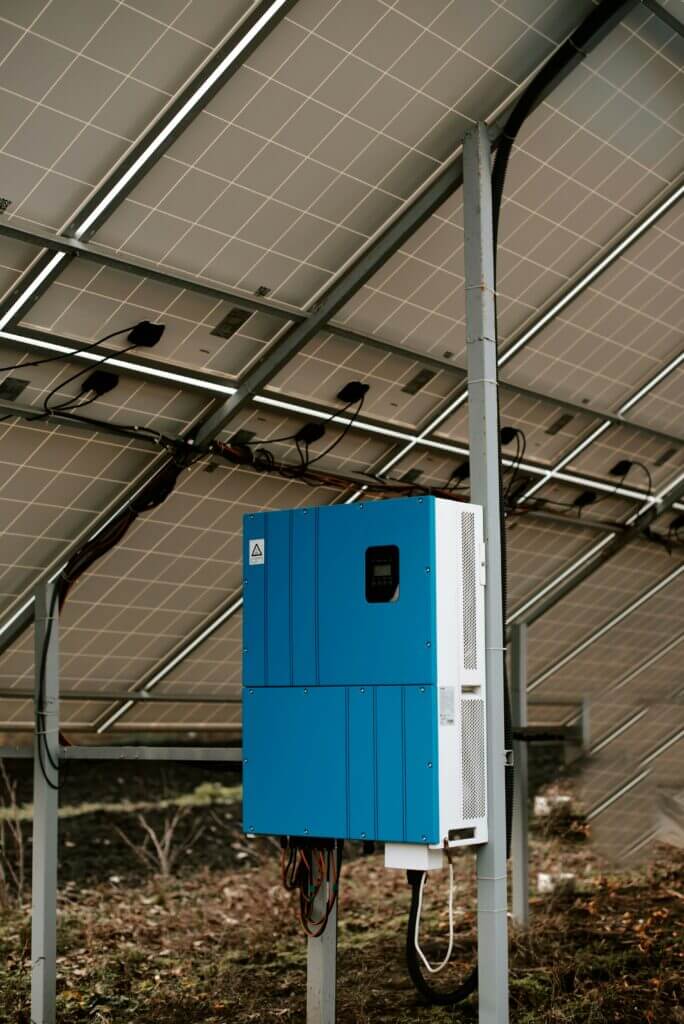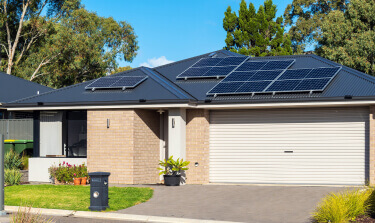Understanding the Cost of Solar Batteries

How Much Do Solar Batteries Cost?
The average cost to install a residential solar battery system ranges from $9,000 to $19,000. This includes the cost for the unit, which varies from $6,000 to $12,000 on average depending on the type and size of the battery. It also includes professional labor costs from $1,000 to $2,000 or more for larger or complex systems.
All costs listed are before tax credits and incentives, which can lower your solar battery cost by 30% or more. We cover specific solar incentive programs and savings opportunities later in this guide.
Adding a solar battery to an existing solar panel system typically doesn’t cost much more than including it during a new installation. However, there may be additional retrofitting costs, such as resolving compatibility issues or upgrading your inverter to a battery-ready model.
If you’re planning to install solar panels but aren’t sure about storage yet, talk to your installer about making your system battery-ready. That way, you’ll have the flexibility to add solar storage later without needing a major system overhaul.
Upfront Costs vs. Long-Term Savings
An easy way to evaluate solar battery costs and overall value is by comparing price per kWh to other models. Cost per kWh for a solar battery represents how much it costs to store and release 1 kWh of energy over its lifespan. A lower cost per kWh rating typically means a battery is higher performing, efficient, and durable.
A solar battery installation’s high upfront costs increase a home’s solar investment and payback period. The financial return on investment could take an additional five to 10 years longer to realize. For many homeowners who purchase a solar battery, having backup energy in place and grid independence are often a higher priority than a faster return on investment.
Solar battery installation may also appeal to homeowners who live in areas with no net metering or where utility companies charge time-of-use rates. Excess energy can be stored in the battery for future use to save costs during peak usage periods.
Factors That Affect Solar Battery Costs
Your home’s energy usage plays a big role in choosing the right solar battery system. Here are the key factors that most influence the cost of installing a residential solar battery:
Solar Battery Type & Lifespan
There are three main types of batteries commonly used in home solar systems:
- Lithium-Ion Batteries: These are the most popular option for residential use due to their high energy density, compact size, and long lifespan (typically 10 to 15 years). They’re more expensive upfront, but their efficiency and space-saving design make them a top choice for many homeowners.
- Lead-Acid Batteries: Often used in off-grid systems, lead-acid batteries are a lower-cost option, but they come with trade-offs. They have a shorter lifespan, lower storage capacity, and usually require multiple units to meet energy needs. They also need regular maintenance and more frequent replacement.
- Flow Batteries: A newer and less common technology, flow batteries store energy in liquid electrolyte tanks. They offer a long lifespan of up to 20 years, but tend to be larger and more expensive. These may be ideal for homes with high energy demands and long-term energy goals.
Choosing the right battery type depends on your budget, energy usage, and whether you need backup power for outages or full energy independence.
Battery Capacity
Power Output
Solar battery output refers to how much energy a battery can release to power your home. It’s measured in two ways:
- Peak power is the maximum amount of energy the battery can deliver at once, which is useful for quickly starting up appliances like refrigerators or air conditioners.
- Continuous output is the amount of energy the battery can steadily release over time to keep things running.
Batteries with higher power output ratings tend to cost more, but they’re better suited for homes with larger energy demands or those looking to power multiple high-usage appliances at once.
Installation and Labor Costs
Average labor costs for professional installation are $1,000 to $2,000. Labor in urban centers or higher cost-of-living areas will cost more than average. Larger or more complex battery storage systems will also be more expensive to install.

Brand and Manufacturer
Industry-leading solar battery manufacturers often charge more for brand reputation, higher-performance products, stronger warranties, and reliable customer service.
Warranty
Solar battery warranties average between 10 and 15 years. Products with stronger warranties include higher lifecycle clauses or total energy outputs and often come with a higher price tag.
Average Solar Battery Costs by Type
While the average cost to install a solar battery is between $9,000 and $19,000, the battery type or technology tends to influence cost the most. Here is the average installation cost for the most commonly used solar batteries.
| Solar Battery Type | Average Installation Cost |
|---|---|
| Lithium-Ion Battery | $10,000 - $19,000 |
| Lead-Acid Battery | $1,000 - $3,000 |
| Flow Battery | $15,000 - $30,000 |
Solar Battery Costs for Off-Grid Systems
Off-grid systems are not connected to electrical grid systems and must rely on solar panels and battery storage for all of their power. For these reasons, homes with off-grid systems should have significant battery storage capacity to power a home for several days without sun.
The average cost for these higher-capacity batteries is $10,000 to $20,000. There are additional requirements when installing an off-grid battery that increase costs, including larger inverters, backup generators, and other equipment to ensure a reliable solar generation and storage system.
Incentives and Rebates for Solar Batteries
To make the costs of solar battery installation more affordable, the federal Investment Tax Credit (also known as the Residential Clean Energy Credit) offers a 30% tax incentive through 2032. The credit applies to both solar panel systems and standalone solar battery systems at least 3 kWh in size.
Many states, cities, and towns also offer local solar rebates that can be combined with the federal incentive for additional cost savings. The Database of State Incentives for Renewables & Efficiency (DSIRE) publishes an updated list of solar battery incentives in each state, county, and municipality.
Finally, some local utility companies offer annual rebates to customers who authorize them to draw on stored battery power during peak usage periods.
Is a Solar Battery Worth the Investment?
Whether or not to include a solar battery in your home solar investment is a big financial decision. Home location, energy usage, and energy security priorities are all important factors for consideration. While it will take longer to realize a solar battery’s financial return on investment, solar energy storage offers a reliable backup solution and energy independence.
A reputable solar installation professional is the best resource for determining the right solar battery storage for your home. Use Modernize’s service provider tool to connect with local installers for specific pricing in your area.
Compare top-rated solar pros in your area.
Read real homeowner reviews, explore qualifications, and view promotions. Modernize makes it easy to browse professionals and find one that will be perfect for your project.








